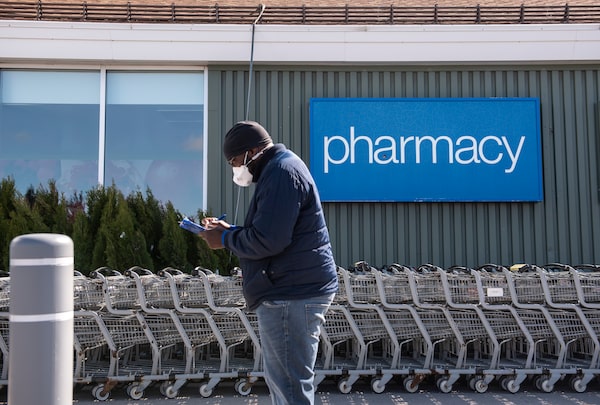
A person walks in front of a Loblaws grocery store pharmacy in Ottawa, on April 26, 2021.Justin Tang/The Canadian Press
Earlier this year, Manulife (Canada’s largest insurer) and Loblaw (Canada’s largest grocer) got into some justifiably hot water.
The two companies had made a deal in which Loblaw-owned pharmacies would be the exclusive provider of some medication for chronically ill patients covered by Manulife’s specialty drug plan.
Patient groups and independent pharmacies said such a deal was wrong because it limited the ability of patients to work with the pharmacists of their choice and gave the large retailer too much control.
After weeks of pressure, the two companies caved and said they would cancel the deal. Case closed, right? The companies, suitably chastened, learned their lesson, right? No one in the industry will attempt such an arrangement ever again, right?
Not so fast. The Manulife-Loblaw deal may have gotten all the attention, but preferred pharmacy (or provider) networks (PPNs), as they are known in the industry, are becoming more commonplace, which is a concerning trend.
Patient choice must be protected in all corners of health care, including pharmaceuticals, and insurers and care providers must be transparent about their business dealings.
There are different types of PPNs. So-called open networks give patients a choice to shop at preferred providers for better pricing, though out-of-network claims will still be processed. Closed networks – the Manulife-Loblaw deal was an example – restrict patients to an approved list of providers.
All major private health insurers run some sort of PPN for drug coverage. Most say their networks are open, although patients and pharmacists say even those networks can be difficult to navigate.
Open or closed, these networks give insurers varying degrees of control over how patients can purchase their drugs. Some insurers are even going a step further by opening their own pharmacies, as Greenshield and Sun Life have done.
There is even the case of Telus Health, which as of March 1 has restricted its employees to purchasing drugs from its own pharmacy. (The company told the CBC the move would save money because it would charge itself lower dispensing fees.)
Insurers say they are driven to these kinds of deals as a way to find savings in the face of mounting drug costs.
It is worth acknowledging, first, that this is a real problem. Canada has the third highest drug costs in the world, and they continue to go up, especially for the incredibly expensive medication used to treat rare conditions.
The Canadian Institute of Health Information said public plans spent 6.4 per cent more on drugs in 2022, after a 7.4-per-cent increase the year before. (Detailed data for private plans are not available.) More than 40 per cent of public drug spending was directed to medication for 2 per cent of patients, because some drugs can cost $250,000 per person a year.
Health insurers, public or private, are stuck footing the bill. They shouldn’t have to do it alone. As this space has argued before, provincial governments should allow private insurers to share in the cost savings from negotiating with drug manufacturers. And the veil of secrecy should be lifted from those negotiations so that Canadians can be sure we are, in fact, getting the best deals available.
All that said, rising costs are no reason to restrict patient access.
If insurers continue to operate these networks, they should be open and transparent. Patients should know that they have options to go out-of-network. Insurers should be clear about the kinds of financial arrangements they have with the providers to whom they are sending patients.
This has been an issue among auto insurers, where network operators receive a share of revenue from health-care providers for sending them patients – even though referral fees are prohibited.
Quebec enacted a law in 1992 that said patients had a choice of which health-care professional they go to, which has served as a de-facto ban on PPNs in the province. The Ontario College of Pharmacists decided Monday to push for similar restrictions in Ontario. Other jurisdictions should enact such laws, too.
Canadians should have the ability to go to the health-care professional of their choice, whether they be at a corner pharmacy or a big-box store.